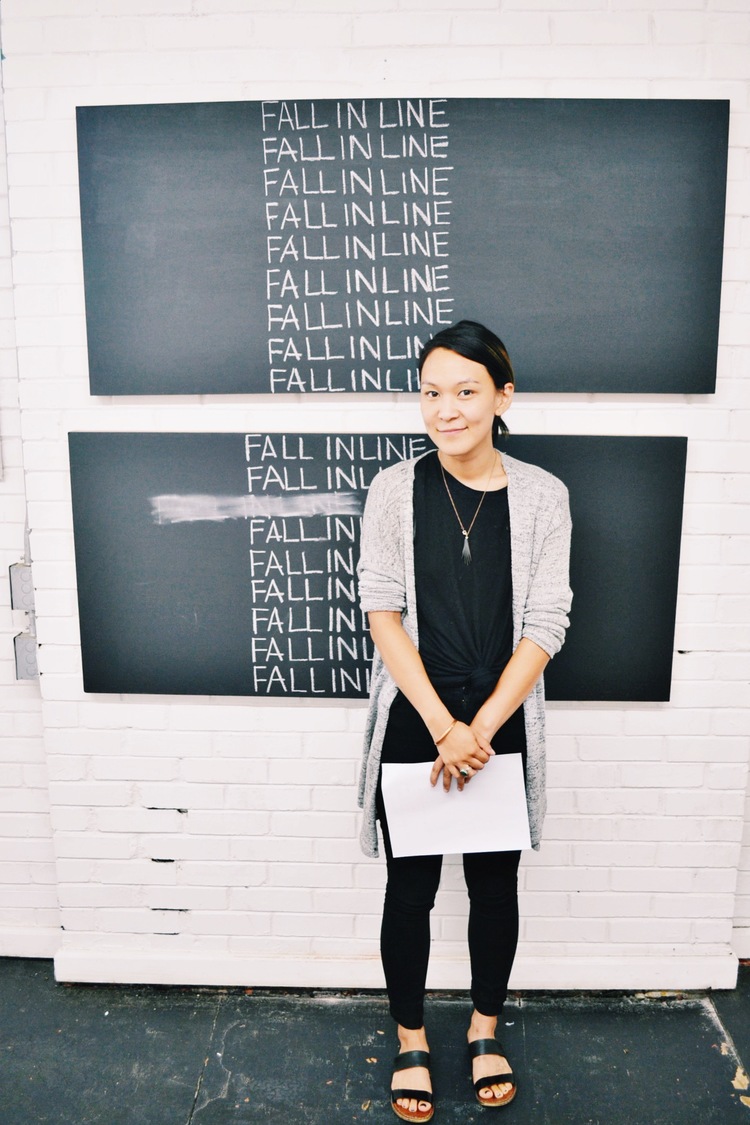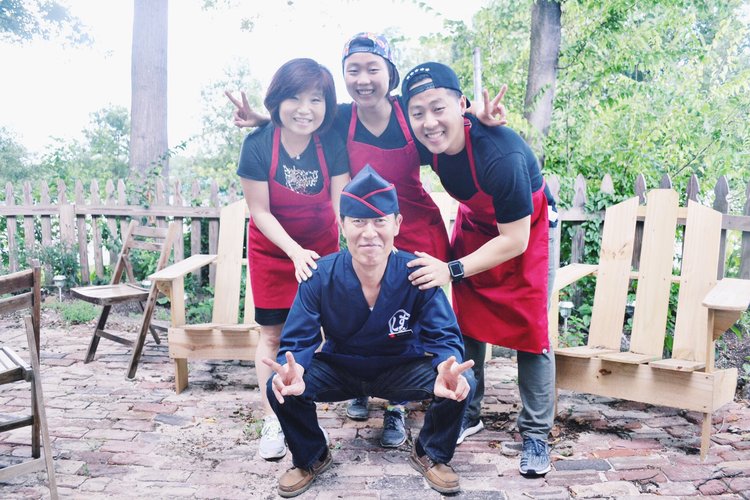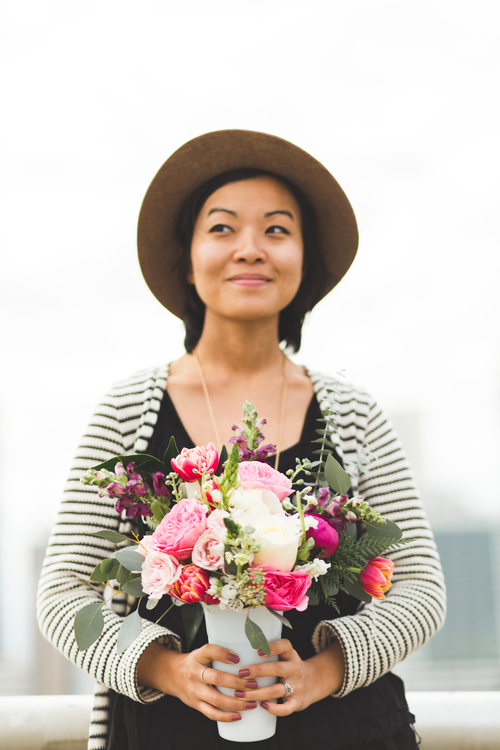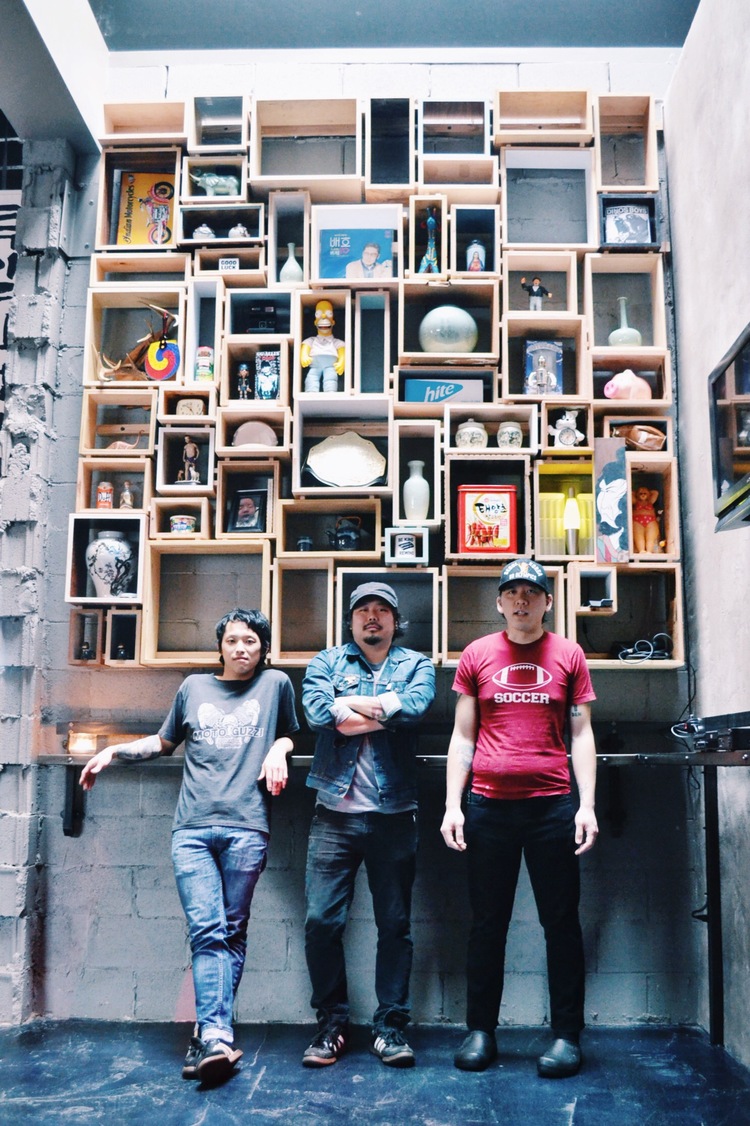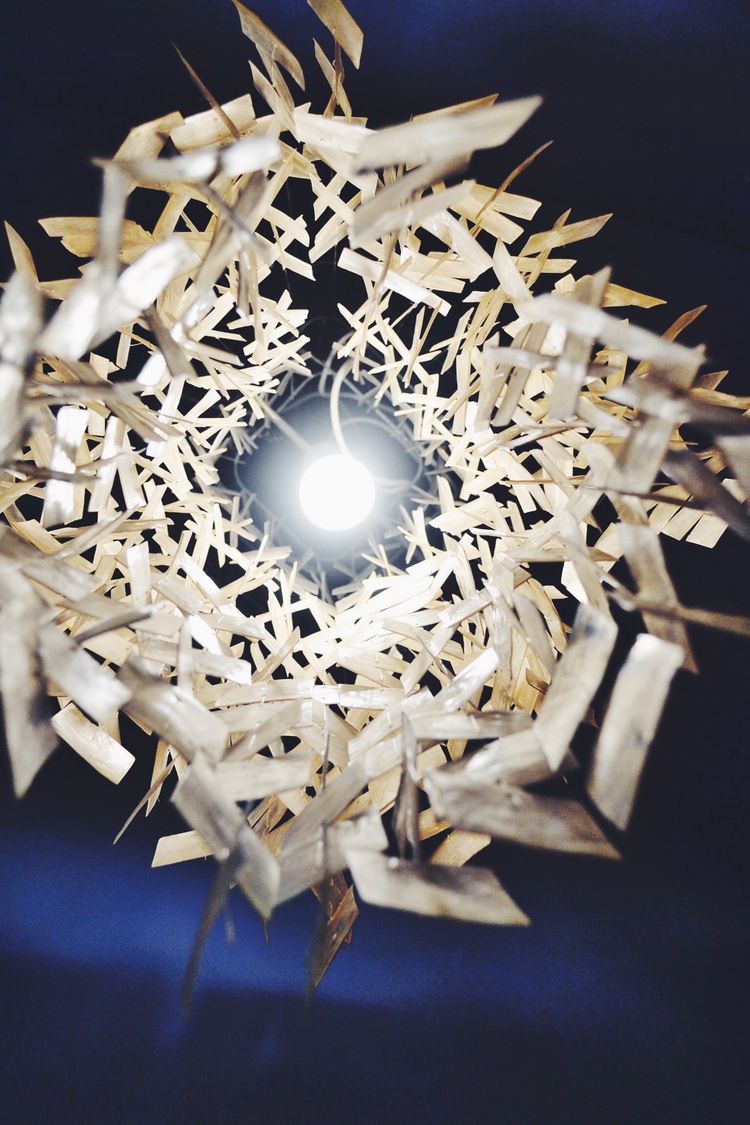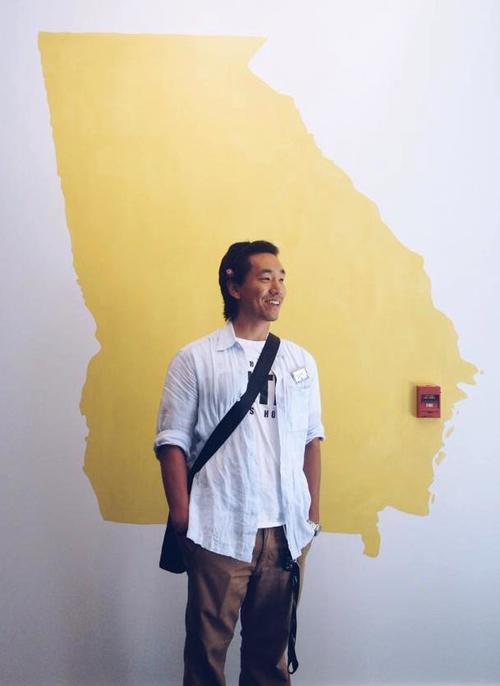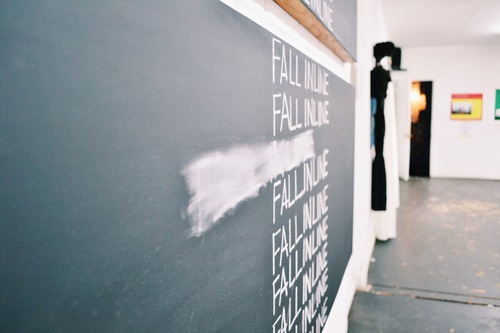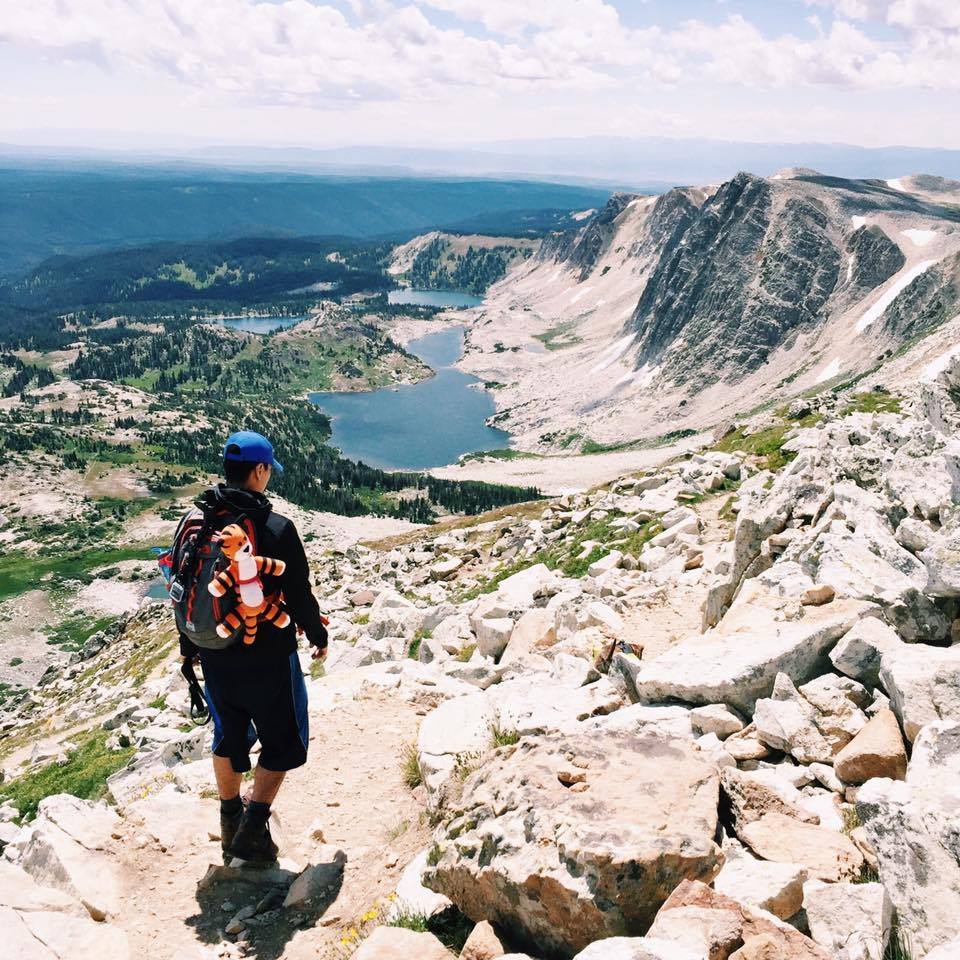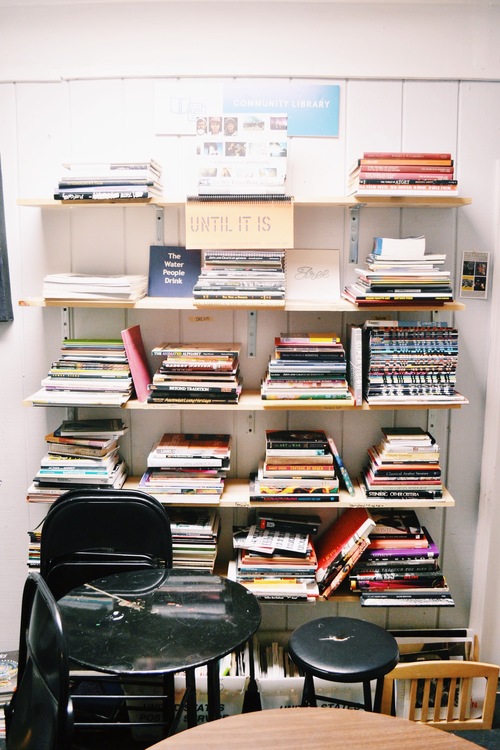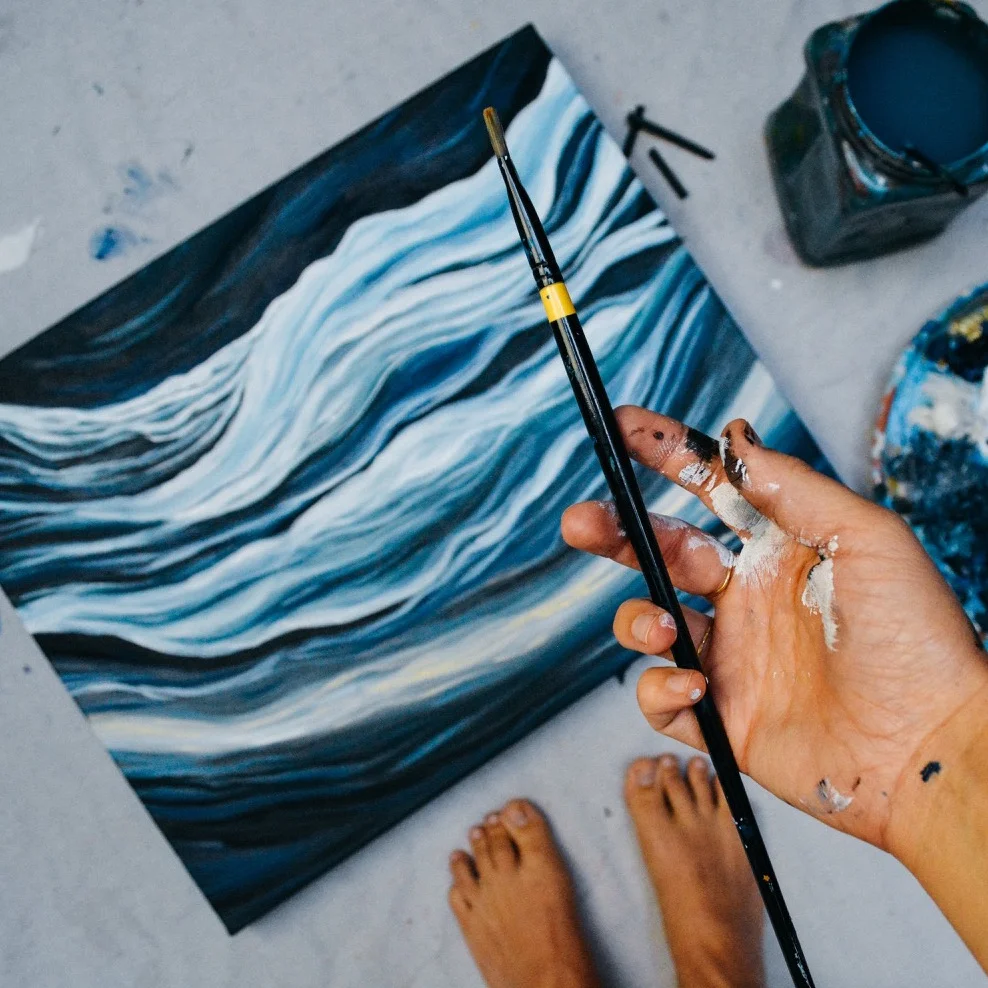An Expression of Self, Truth, & Love—wholeheARTed guest, Kit Song
For our wholeheARTed guest this week, art is primarily a form of expression. Art peels back the layers to expose what's stirring just below the surface, revealing more than just the creation itself. As a writer, seminary grad, and Colorado transplant, Kit Song is a creative with endless forms of expression; we're excited to share just a glimpse of them with you.
Read on below and check here to catch up on our other wholeheARTed guests.
SA: When did you first consider yourself an artist or creative person?
KS: I first considered myself a writer when I was about 8 or 9 years old. This, in retrospect, seems a bit lofty considering I’d only just moved to the States a couple years prior when I was six. But you have to understand, I read prolifically. It wasn’t particularly because I loved to read just yet, but rather a combination of a sort of understanding that I needed to learn the language to survive—particularly so in Iowa City, Iowa, where we’d immigrated, and I found myself quite literally the only Asian in class—along with just a profound sense of loneliness.
But a peculiar thing happened. I’d begun to read out of necessity, but that necessity became a thing of passion for me. Kids and most adults begin to emulate, or at least want to emulate, whatever it is that occupies their time, and most weekends for several years, I came home with a stack of books from the library that I’d have to balance with my chin (I realize that this is a relative measure as I was probably no taller than four feet at the time). Soon enough, I wanted to be able to write like these authors. They were children’s books at first, Clifford the Big Red Dog, Junie B. Jones and Calvin and Hobbes, but eventually evolved into The Boxcar Children, Goosebumps, The Animorphs, The Wayside School Series, etc., but they were the greatest writers my world knew at the time. In fact, Calvin and Hobbes persists, even as comic strips, as my favorite books of all time because of the impact it had on me as a child.
There’s a moment when there’s a sudden realization that a thing, a craft, is no longer simply a tool, but a way of invoking and defining emotions. Reading went from chore-like and rigid to something that made me feel. I was awkward and still learning how to speak the language properly, but I was absolutely killing it in the grammar game. I was soon reading faster than anyone else in my very American 3rd grade class, writing better, neater, longer. But not only was I getting technically better in school, books gave me a sense of belonging and adventure at home, and it lessened the dull feeling of realized solitude. Even when I was running around the neighborhood with kids, I knew I wasn’t relating to them in a way that made them see me as a friend, but rather as a peculiar addition to their neighborhood, a flight from the norm. I was weird, different, and spoke with a lisp and stutter if I spoke at all. But at home and in a book, I didn’t feel anxiety; I felt excitement, a sense of belonging and accompaniment, courage. I learned about falling in love. I was taught how to think one way or another about rejection according to how the narrator explained it. It was all a manual on what and how to feel.
Soon enough, free time in class was spent solely on writing, and I was putting out short stories one after the other. I was selected and sent to a state-wide writing conference two years in a row. I wrote plays that the class acted out. My 4th grade teacher gave me her information and told me to send her my book when I was published. It was an exhilarating feeling to be recognized for something that didn’t make me anxious.
And so, in 4th grade, I decided that I was a writer.
SA: Tell us about the art you create or how you express yourself creatively.
KS: I like to write. At a certain point in my life, I decided that I needed to use writing to tell the truth, or a truth, and so I began a website called uni-ko to tell Asian-American stories, specifically in Atlanta at the site’s onset. I also have two full-length manuscripts that I’m still trying to figure out what I should do with, but the journey itself was a joy to write. I’m just not as talented at marketing myself, I suppose.
More than writing, though, I like to create.
Dance became an integral part of my expression at a young age, around 11. I was inclined to hip-hop dance: breakdancing, popping, etc.—all of that appealed to me. What I was attracted to, I think, was the element of liberation. There was no choreography, really, and it was a free form expression, but what I liked most about it was how it almost resembled violence. There was no intent to injure others, of course, but it was the closest expression of self that embodied an anger, angst, or frustration. Movements are big and sharp with moments of fluidity. We use all parts of the body, and any joint at any given time can be in the air or on the ground. And almost always, we pushed ourselves to the edge until injury became a natural part of the process. I believe it was a natural form of expression I adopted during my early teenage years because of the crowd I was in; my friends and I all had a chip on our shoulders. We couldn’t particularly articulate it, however, not as well as we can now, anyway. It was the frustration of being a minority considered passive, and because we couldn’t quite express it to process it at the time, it manifested physically in the form of dance. And I loved it.
Above all, however, I love to express my creativity in the form of spoken word. I did it in the form of music for a little while. It’s the welcome challenge of being constrained by rhyme and rhythm and the liberating feat of being able to express yourself creatively with said constraints that truly attracted me. There doesn’t necessarily need to be music either, just the rhythm innate in the performance. To be properly honest, it’s the expressed spoken word that I enjoy the most. There’s an enormous amount of fun to it.
Lastly, I tried my hand in directing and video editing. This was a fairly recent form of creative expression for me in my life, and the amount of time it consumes doesn’t justify forsaking the set of responsibilities that I find myself with now at this stage in life, but it was enjoyable and a good experience, and I wanted to add it to the list because I feel that if I’d discovered it sooner, it’s what I would’ve wanted to pursue.
Photos & people featured on uni-ko, an online publication spotlighting the stories of Korean-Americans. Photos & stories captured by Kit Song.
SA: What is your creative process like?
KS: Creativity for me is defined as the expression of a truth within us as articulated by the talent and tools afforded to us by circumstance. I have no doubt that a person, whether or not they are blessed with the circumstances to attain and hone a certain talent for expression, will find some way of expressing themselves artistically, regardless of class, gender, race, or age.
In this way, my creative process begins when and only when I believe I have a truth worth telling. I cannot bring myself to “express” if there is nothing substantial to express. At the most, it would be a showcasing of the talent without a message, akin to an unused pen, an empty box, or an ornamental instrument. Practicing the craft is a different matter altogether, and working to hone my skills, I believe, is a respectable way to spend my time. My creative process, however, only begins with an abiding truth that begs to claw its way out of me.
My writing process, I don't think, is limited to my command; throughout the week, I’ll set up my desk, leave aside a few hours to write, make coffee or tea, turn on some music, and be unable to come up with anything inspired at all. However, I’ll be in the grocery store, trying to learn the difference between russet and yukon gold potatoes, when suddenly, it’ll dawn on me that we have irretrievably changed the face of the Earth in accordance to our appetite. Something like this would be a sentence or two I’d like to write down and let simmer, and so I carry a pocket-sized notebook and pen around at all times. Then, at a later time, I’ll sit down to articulate the idea better, and do my best to extract a universal truth, or even a little, bite-sized one, from such a notion.
Finally, my last rule is to always, always, always proofread.
SA: What does fear look like for you and how does it show up in your creative process?
KS: Fear for me on most occasions looks a lot like insecurities regarding my writing skills and whether or not what I have to express really has any bearings or relevance to anybody who might read it. I wonder about whether my skills aptly express what I hope to express, and even if they do, I wonder if what I’m writing even means anything to anyone. The whole reason I would write it out would be because I held the belief that others may recognize truth in the words—otherwise, I’d be content with leaving the thoughts in my head.
But that isn’t what I’m most afraid of. The most profound fear I have is that the writing is the best that I could make it, the topic is absolutely relevant, the truth is both compelling and undeniable, and, in the end, no one reads it. My biggest fear is that what I’m writing is pointless, not because I’m not skilled enough or that what I’m writing wouldn’t show something new to somebody, but that it’ll just never be picked up at all.
Photos courtesy of Kit Song & uni-ko.
SA: How do you push beyond fear and self-doubt when they emerge during the creative process?
KS: This has been a struggle for me sometimes because the very nature of fear is to make you believe that what it suggests is reality. It draws you in with a harmless inkling, so to allow it to flourish into a thought seems rather a practice of imagination than an invitation of fear. But before long, the inkling has become a thought, and the thought has become a doubt. Doubt, however, seems responsible, as it could only be considered irresponsible to ignore possible pitfalls, so I have to at least inspect the integrity of my writing by considering what critics might say. Right? Don’t I?
I’ve been able to push beyond fear and self-doubt by remembering one thing and one thing only: it should be enjoyable. The moment I’m writing and the ink is any shade of anxiety or fear or self-doubt, I try to remember to step back and realize that it’s a transference of emotion: if I enjoy writing it, people will enjoy reading it. Technical details are all things I can come back to fix, but writing gets incredibly hard when there’s a monkey jumping on your back doing its best to remind you of what a critic may say. In the end, if I don’t enjoy writing it, then it’s not worth writing at all. Otherwise, I’m just trying to impress imaginary people. It’s vanity.
SA: How is your creativity connected to your faith?
KS: My faith wouldn’t and couldn’t be what it is today without my creativity. I cling to it now as I would a sword. If it weren’t for my ability to first define a situation and then somehow try to creatively articulate my way through the darker times, I wouldn’t have the faith that I do now. Some of the lowest moments of my life were in the last few years, and, in retrospect, I realize that I was only able to make it through without giving up because I was able to recognize the narrative of the Desert Time. It was a time to be challenged and stretched and taught, and I had to address it for what it was, or else I would have completely lost faith and decided to move onto something entirely different in order to escape.
And not only does my creativity play a part in defining the circumstances around me, it plays a vital role in defining myself. During my desert moments, I had to find and form the narrative that would define me as a person of faith in the face of self-doubt as I’d never had the opportunity to face before. Since I was young, it had been entirely too convenient to put up pretenses that I myself even believed, and one day I was stripped of all of that. At that point, something had to be spoken into the void. My faith wouldn’t be what it is today if I weren’t a storyteller, and my creativity nourished me with stories of faith and built me up as a person of faith. It sustained me.
Knuck if you buck, I guess.
“It’s the thing that saved me in Iowa, saved me again and again in my darkest moments. It’s what brought life into my existence, whether it be through writing or something completely other. The art isn’t as important as what it expresses.”
Photos courtesy of Kit Song & uni-ko.
SA: How does creativity/art lead you to wholeness?
Art is an expression of the self—there are as many ways of expressing a truth as there are people. Probably more. Art leads me to wholeness in the same way God breathed life into a lifeless being: it defines my identity and gives me purpose. Without art, I’d exist, but mechanical would be a better word to describe that existence. With art, I am able to be passionate, to define what makes me feel whole, and own the liberty to pursue it. Art allows me to depart from the world of materialism and find value in something rich and intangible. It’s what I’ve been circling around this whole interview. It’s the thing that saved me in Iowa, saved me again and again in my darkest moments. It’s what brought life into my existence, whether it be through writing or something completely other. The art isn’t as important as what it expresses.
It’s called love.
Whether it was self-love, romantic, filial, or divine, it has sustained, enriched, and sent me. Art has allowed me to see it, experience it, express it, and it is what makes me whole. And that is the truth that I hope to express through my art.
God bless.
Kit Song
My name is Kit Song, and I’m a 30-year-old Korean-American currently residing in Fort Collins, CO, with my wife and two dogs, both pit bull mixes (not my wife). My favorite things to do right now are hiking and snowboarding, depending on the season. My soon-to-be most hated thing to do in the near future is probably learning how to fly fish, but I reckon soon thereafter my favorite hobby will then be to fly fish. Atlanta, GA, will forever be my home as it’s where I did most of my growing up, but I’m out here working hard on my grown man tip, currently working as a classified city employee for Fort Collins. Furthermore, I like to think of myself as a writer; it pleases me.

